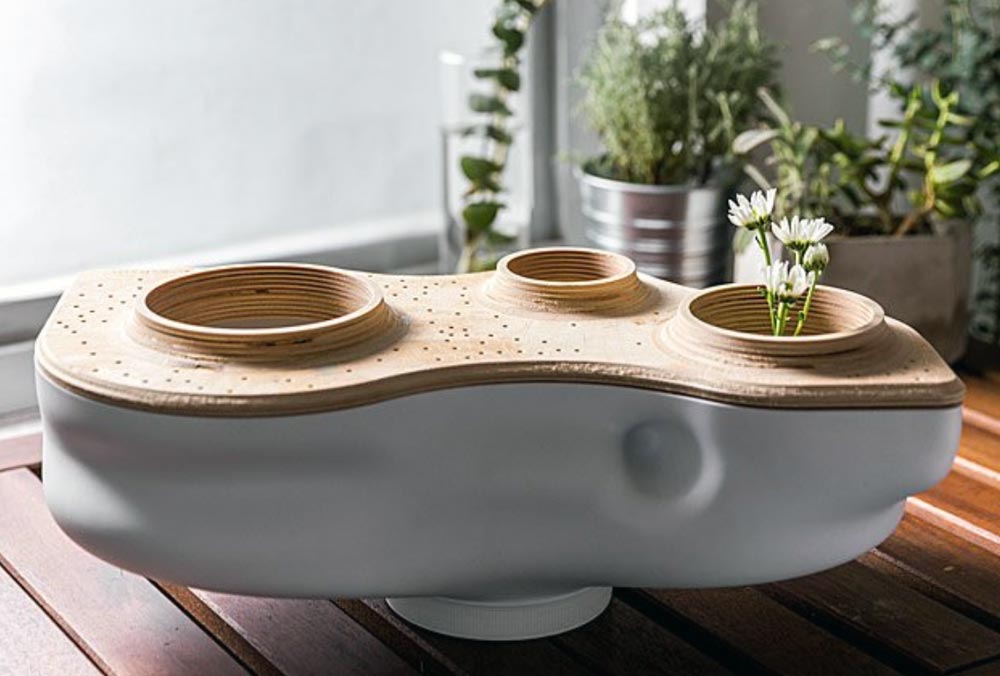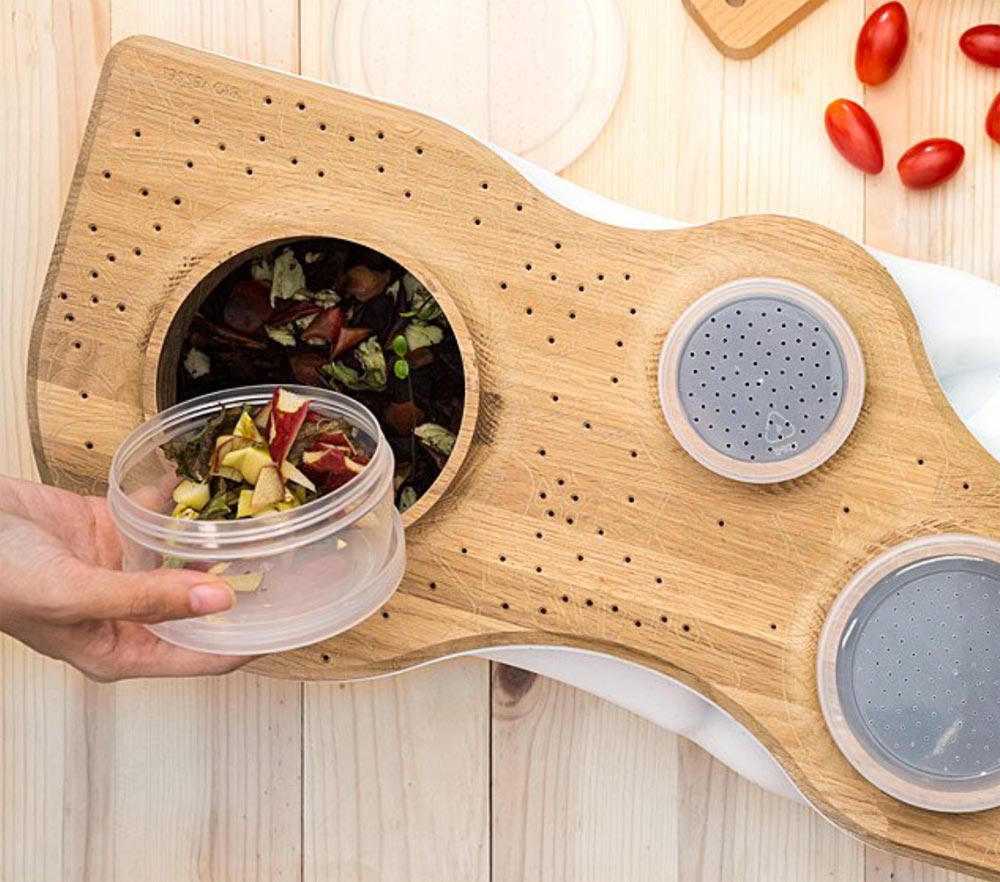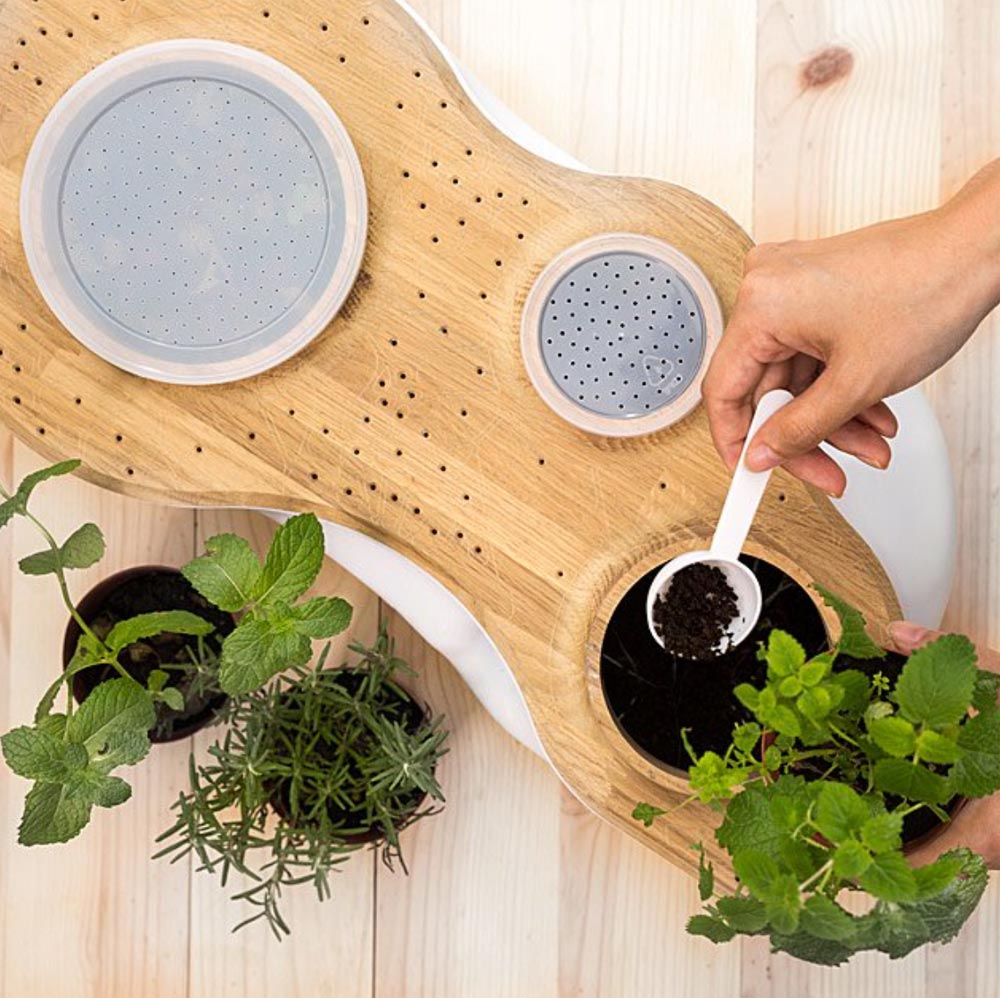NEWS – Even when you prepare every meal from home from scratch, there’s a lot of food waste. I’m not even talking about packaging; I mean the peelings and trimmings from fresh fruits and vegetables. In nature, food materials take only 1-2 months to decompose. If you throw those food trimmings into the garbage, they’ll go to the landfill. They’ll decompose eventually in the landfill, but they’ll take up to a year to do it, and they’ll produce methane as they decompose. (Methane has 21 times the global-warming potential than carbon dioxide.) Composting would be the most earth-friendly method of disposing of your fresh food waste, but that’s not always easily done in an urban environment.
The designers of the Living Composter, a biomorphic worm house, collected data for almost two years, then created an algorithm to figure out the best shape for both worm health and human convenience. The composter is meant for use in your kitchen. It’s made of recycled plastics with a wood top; it measures 17.7” long x 8.7” wide x 6.5” tall. You fill the vessel with a dirt/sawdust mixture and add some redworms. (You’ll need to supply your own worms and dirt mixture.)
“Drop fruit and vegetable peelings, grain foods, and tea bags into a top opening. The worms will eat at least half of their own weight of scraps per day. The composter can ‘process’ over two pounds of food a week, enough to keep up with most or all of the scraps in a two- or three-person household. Spread the easily removed compost next to your plants or in pots, and watch those babies grow.”
Vermicompost (worm “castings” or manure) is packed with water-soluble plant nutrients, beneficial enzymes, and microbes, and it improves soil’s ability to hold moisture. As little as a tablespoon of vermicompost could feed a 6″ potted plant for over two months. You’ll not only reduce the impact of your food waste by composting it, you’ll produce some of the best fertilizer possible for your own plants.
The Living Composter is $199.00 at UncommonGoods.





